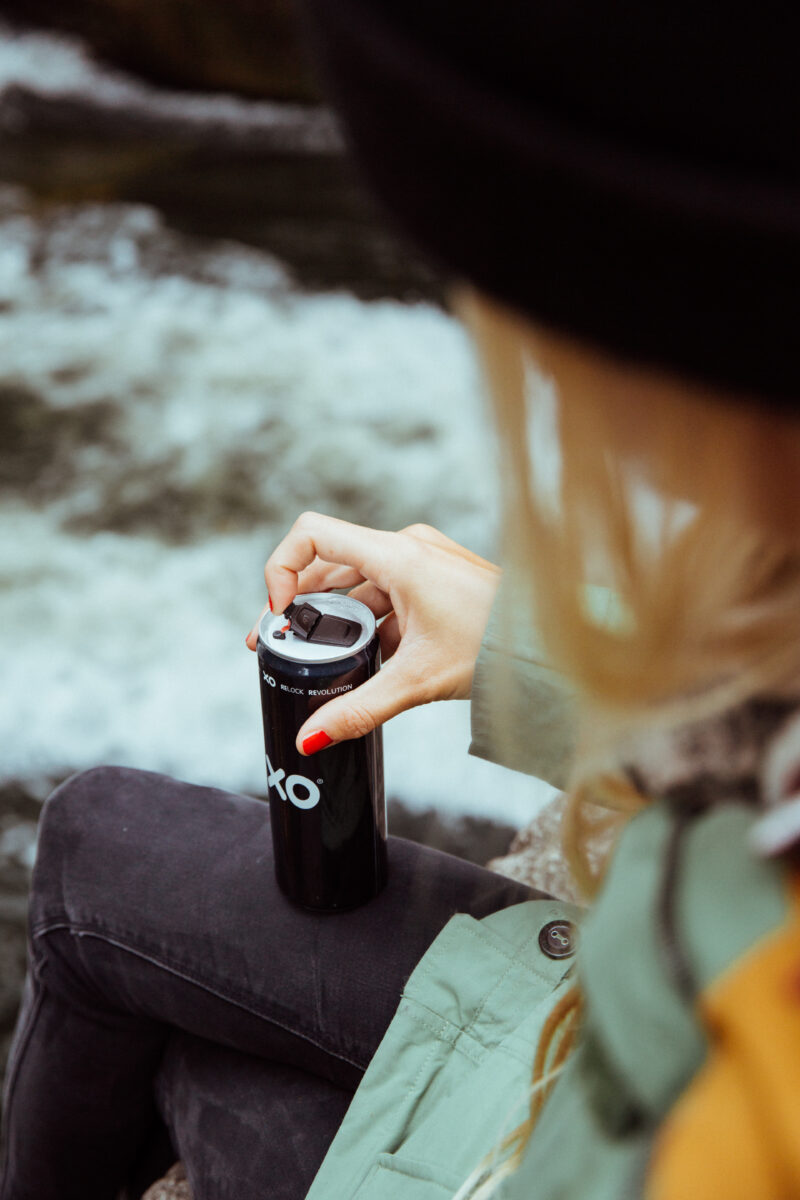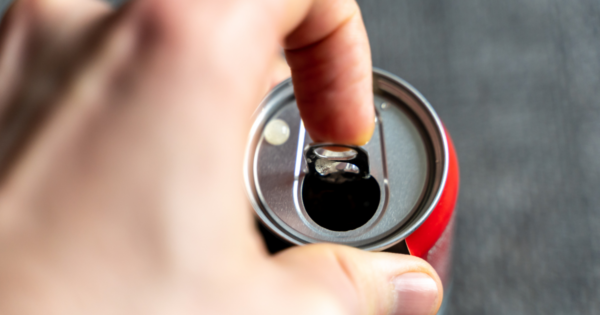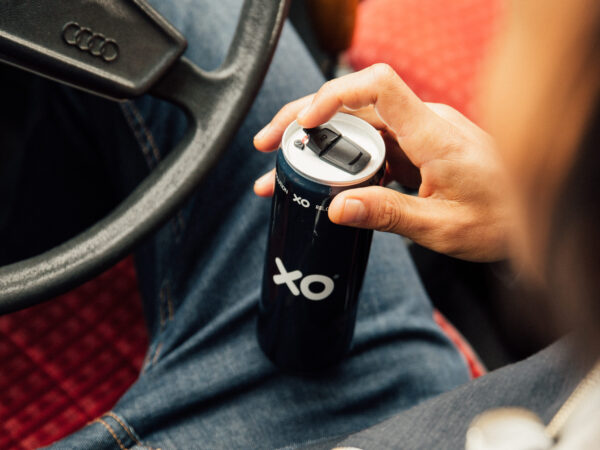How Smarter Packaging Drives Premium Value and Less Waste
How Smarter Packaging Drives Premium Value and Less Waste
A strategic look at how resealable can ends reduce waste, elevate consumer experience, and support premium positioning
In the effort to reduce waste and build more sustainable products, packaging is playing a bigger role than ever. For beverage brands, especially those in functional, wellness, and craft categories, packaging is a key driver of competitive advantage and long-term value creation.
While much of the industry conversation around sustainability focuses on materials, one critical factor is often overlooked: product waste from unfinished beverages. When drinks are discarded before they’re fully consumed—whether due to timing, lifestyle, or convenience—the result is lost revenue, diluted brand impact, and avoidable environmental cost.
This is where resealable can ends technology delivers measurable business and sustainability benefits.

Packaging and the Waste Problem
Every discarded beverage, whether half-consumed or spilled, carries an environmental and financial cost. From raw materials and packaging to production time and distribution, every lost sip translates into lost value.

While many sustainability initiatives focus on materials, designing packaging that supports real-world consumer behavior is equally important. Today’s consumers expect products to adapt to their lifestyle. Whether commuting, traveling, or multitasking, they value flexibility and function in their purchases.
Resealable Packaging as a Waste Reduction Strategy
Innovative technology, such as the XO resealable can end, directly addresses this challenge by allowing consumers to close and reopen their beverage on their own terms. The result is not only a better product experience, but a strategic opportunity to reduce waste and improve brand engagement.
Key business and environmental benefits include:
- Reduced product waste from unfinished or discarded beverages
- Improved portion control for consumers focused on health or moderation
- Decreased loss from spills during travel, storage, or distribution
This simple innovation unlocks measurable gains across both sustainability and profitability metrics.
Top Beverage Categories That Benefit from Resealable Packaging
Functional Beverages:
Products designed for energy, focus, recovery, or nutrition often command premium pricing. When consumers cannot finish these drinks in one sitting due to serving size, taste, or timing, the product’s intended benefit is lost. Resealable packaging ensures they can consume the product when it provides the most value, maximizing both impact and satisfaction.
Craft Beverages:
In categories like craft beer, specialty coffee, kombucha, and premium mixers, drinks often have complex flavors or higher alcohol content that are best enjoyed in measured portions. Traditional packaging encourages immediate consumption, which can diminish the experience and increase waste. Additionally, craft beverage consumers frequently prioritize environmental responsibility and expect the brands they support to reflect those values.
Wellness Beverages:
Health-conscious consumers often practice mindful consumption and portion control. They may choose to split a beverage across multiple moments in their day or save it for pre- or post-workout routines. Standard packaging can work against these preferences and result in unnecessary waste, which runs counter to the sustainability mindset common in this category.
These categories share important traits: elevated consumer expectations, higher margins, and increased demand for environmentally aligned packaging. Resealable solutions meet these expectations with real functionality and value.

Strategic Advantages of Resealable Can Technology
Immediate Cost Benefits
Resealable can ends help reduce product waste at the source. For high-cost or premium beverages, minimizing unfinished product translates directly into improved margins and better resource utilization.
Competitive Differentiation
In crowded and competitive categories, packaging innovation provides a visible and defensible advantage. Resealable functionality offers a clear, consumer-facing benefit that supports premium positioning and reduces direct comparability with lower-cost alternatives.
Premium Pricing Support
Consumers are willing to pay more for packaging that delivers added value, especially when it aligns with health, convenience, or sustainability. Resealable cans provide tangible benefits that support elevated price points.
Regulatory Alignment
With packaging legislation evolving to focus on waste reduction and extended producer responsibility, brands that adopt sustainable solutions early demonstrate leadership and mitigate future compliance risks.
The Aluminum Advantage
Aluminum is already one of the most sustainable packaging materials available. It is infinitely recyclable without degradation in quality. When paired with resealable technology, it offers a compelling solution that addresses both product waste and packaging waste.
For brands developing ESG strategies, this is a rare dual-impact solution. It demonstrates measurable environmental stewardship while supporting consumer needs and business outcomes.

Implementation Strategy for Maximum Impact
Portfolio Integration
Brands can maximize ROI by aligning resealable packaging with premium lines, limited-edition releases, or functional beverage segments. These areas offer strong consumer alignment and valuable opportunities for market testing.
Consumer Education
Success depends on communication. Consumers need to understand how resealable packaging improves their experience and supports their values. Clear messaging at the point of sale and across digital channels can accelerate adoption and increase perceived value.
Supply Chain Optimization
Effective implementation requires operational planning. Considerations such as production line compatibility, inventory forecasting, and logistics should be evaluated to ensure seamless integration and avoid disruption.
Proven Solutions for Waste Reduction and Brand Differentiation
The beverage industry is increasingly moving toward packaging that delivers both environmental and commercial value. Resealable aluminum cans are a proven solution that meets real consumer needs while supporting measurable sustainability outcomes.
For beverage brands focused on premium positioning, environmental leadership, and operational efficiency, resealable packaging offers a strategic opportunity to improve ROI and sharpen competitive differentiation.
Strategic packaging decisions begin with understanding how innovation can enhance consumer experience and business performance. Resealable packaging is one of those rare innovations that does both.
Why the XO Resealable Can End is a Game-Changer
The XO resealable can end, developed by Xolution, is a perfect example of innovation meeting consumer demand. Designed to offer the convenience of a traditional aluminum can with the added benefit of resealability, it’s transforming how beverages are consumed. This product offers several key advantages that make it stand out in the market:
- Safety: This innovative packaging is child-resistant certified, adding an extra layer of safety, especially for households with young children. This feature addresses an important concern for parents while maintaining ease of use for adult consumers.
- Convenience: The resealable feature allows consumers to enjoy their drinks on their own terms, whether they’re commuting, exercising, or simply not ready to finish a beverage in one sitting. No more wasted drinks or the need to transfer beverages to another container.
- Sustainability: In an era where sustainability is crucial, the XO can end helps reduce waste. Resealability means that beverages stay fresh longer, reducing the likelihood of product disposal.



